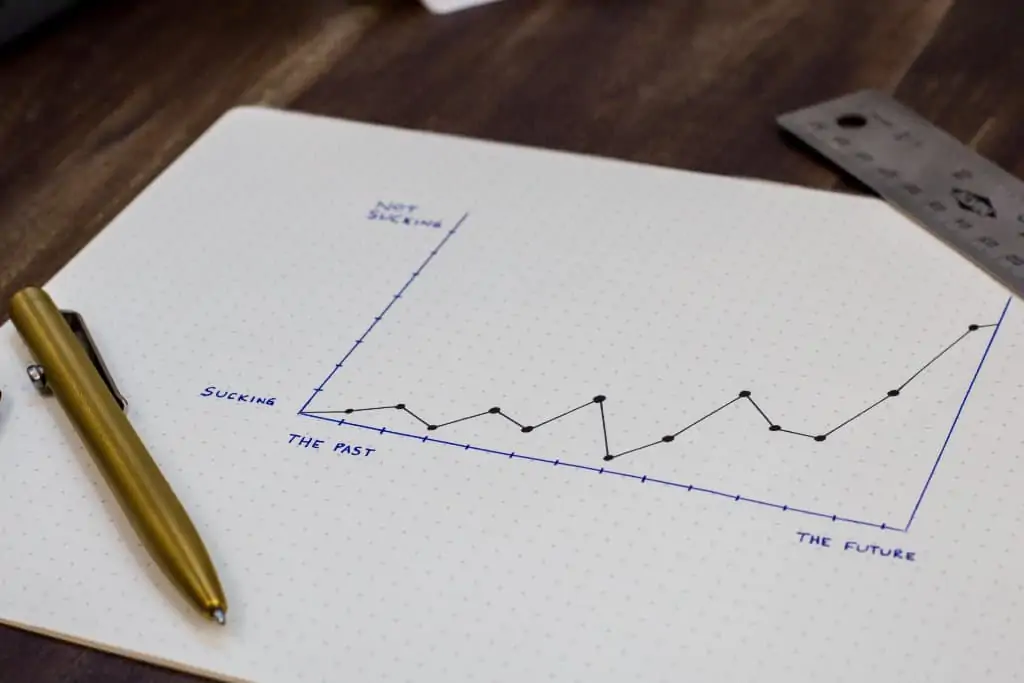You keep hearing time and again how practice is one of the most important parts of playing an instrument. While part of the success comes from raw talent, the majority is thanks to constant practice.
But how much or how often should a beginner practice and play the guitar? The answer to this question mainly depends on the goal that a beginner desires to achieve. For example, learning only basic chords won’t take you much time, and you will need to play a couple of hours each week. On the other hand, if you are looking to become a virtuoso, you will need to spend countless hours each day.
Furthermore, another important factor is the speed you’ll need to understand and learn something new.
How Important Regular Practice Is
Once you determine your goals, you can begin to practice. However, regardless of the skill level you desire to achieve, you should know that there is one essential thing to remember, and that is practice regularly. While it is always a good idea to practice as much as possible, it is more important to play regularly. This means that beginners should play half an hour or an hour every day, rather than playing a couple of hours one day and then doing nothing for the rest of the week.
The reason for this is that regular practice can help you build muscle memory. As a result, your fingers will “remember” the song or anything quicker than your brain does. Another important factor is continuity. If you keep practicing every day, you are will significantly improve. Furthermore, the results will be noticeable a lot quicker with proper practice and learning.
Naturally, each person is different and thus will need different amounts of time. Besides, our goals can be different as well. If a person is aiming to learn only basic chords so they can play rhythm or simply have fun, they will need a lot less time compared to someone who is looking to become a virtuoso.
The common thing for both examples is that they will need practice and their sessions should be daily. Naturally, the first person might need to spend fifteen minutes or half an hour each day, while the other will dedicate hours to improving their playing skills.
if you feel like you are having a hard time staying motivated to play daily then check out my post How I Motivate Myself To Play Guitar Every Day – 15 Tips
What Should You Practice? Is There A Good Practice Routine?
Now, the answer to this question is a bit tricky. If you are an absolute beginner, you will not know many things, to begin with. As a result, you won’t be able to spend hours and hours practicing, simply because you have no idea what to practice. Furthermore, beginners usually have problems with stamina, coordination, and etc. The best approach would be to start with the basics, and practice as much as you can.
Of course, the type of your class will depend on your goals and what you want to accomplish through practice. If you have a clear idea in your mind, you won’t have a hard time finding the basic lessons based on your goals.
One of the things that you should undoubtedly learn regardless of the type of guitarist you are aiming to become is the names of the notes. This way, you will get a better understanding of chords, scales, and almost everything else.
Another exciting thing you can practice, especially if you are playing an electric guitar is picking. While it might feel strange playing the guitar with a pick, and trying to hit a correct string, it’s one of those things that’s easily solved with enough practice. Naturally, if you are more focused on fingerpicking, you can practice proper techniques and patterns for playing using this style.
As you progress and learn more, you will be able to practice more. The beginning is always the hardest because people don’t know where to start. However, as time goes by, you will be ready to practice for hours with the knowledge you have.
When Will You See Progress

Another common question is when will you be able to notice that you learned something and that there is visible progress. Since everyone is different, our learning rate and time needed to understand something can vary. Usually, some kind of progress is noticeable after approximately six months. Naturally, this can be longer or shorter based on the time you invest in practice. One of the most important things is to be patient and focus on the little signs of progress. For example, after a few weeks or months, you’ll probably notice how you can switch between chords more fluently.
As you progress, your musical ear and your fingers will be used to the guitar and the sound it creates. Of course, the truth is that each time you pick up a guitar, you will know more, and you will progress a little. Each day you will be better than you were the day before.
After the first six months, you will feel more comfortable with an instrument. Besides knowing your way around the guitar, you will also learn faster. Since you won’t need to spend time trying to figure out what strings you need to pluck, or how to play a certain chord. Furthermore, you will probably know how to play basic chords flawlessly, and even some more complex ones. This will also be a great time to start improving your solo skills and learning more about scales and how the lead guitar work. Eventually, you will know how to play barre chords and you will know almost everything about your fretboard. Of course, it is possible to learn each of these things faster with more practice.
What To Avoid And Common Mistakes
One of the most common mistakes is burnout. If you focus more than you want or need, you might experience burnout. If you spend an entire day playing, you might feel exhausted tomorrow and feel like you don’t want to play. It is normal. While this is easily avoided, it can still happen from time to time. The way you can save yourself from this inconvenience is by planning and sticking to the practice schedule.
If you can’t keep with incredibly long practice sessions, or playing four hours each day, for example, try to control your urge and stop playing for the day. “Healthy” practice should be your main goal, and that means practicing every day.
Another common mistake is trying to cover everything at once. Keep both of your feet on the ground and learn slowly. There is a saying that if you learn slowly, you will forget slowly as well. If you try to learn everything in a week, you will forget every part of the lesson before you know it.
Furthermore, it is not rare that we get carried away while playing, and that we focus on things we already know instead of perfecting things that we haven’t mastered yet. The trick is to split your practice into two parts. In the first one, you will go through the things that you already know. In the second, you will try to learn something new and perfect parts that your playing is lacking.
if you wish to know more mistakes that you can avoid to become a better guitar player you can check my list 27 Common Mistakes Guitar Players Make And How To Avoid Them
Summary
Learning how to play the guitar is never easy and it takes time. Many want to know how much time should they invest in practice, and how often should they play. The answer mainly depends on their goals and wishes for their music career. For example, one person may want to learn basic chords only, while the other will want to focus on writing their own music and playing complex parts. The time each of them should invest in practice is different. However, both these goals are achievable with enough practice, dedication, and time.
If you found this article useful, you may want to save this pin below to your Guitar board.

Recent Posts
When learning new songs have you noticed that some of the chord sequences sound really good? But when you tried to come up with your own chord sequence, or as we call it chord progression, you found...
Some guitarists insist on buying an expensive amplifier with their electric guitar. They assume that this is a must for every type of guitarist out there. However, in some situations, this isn’t...

